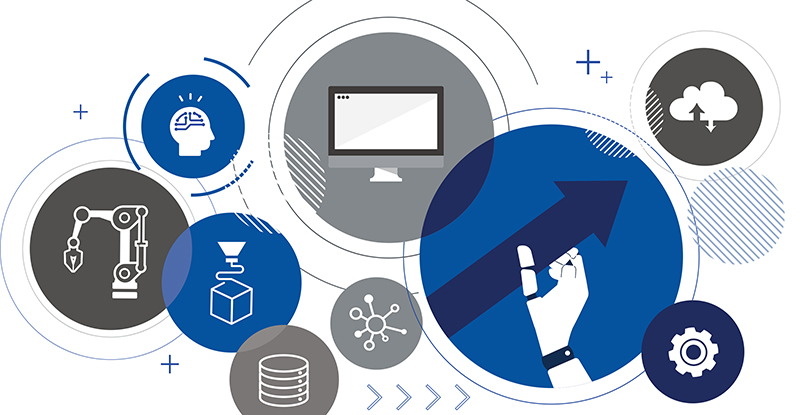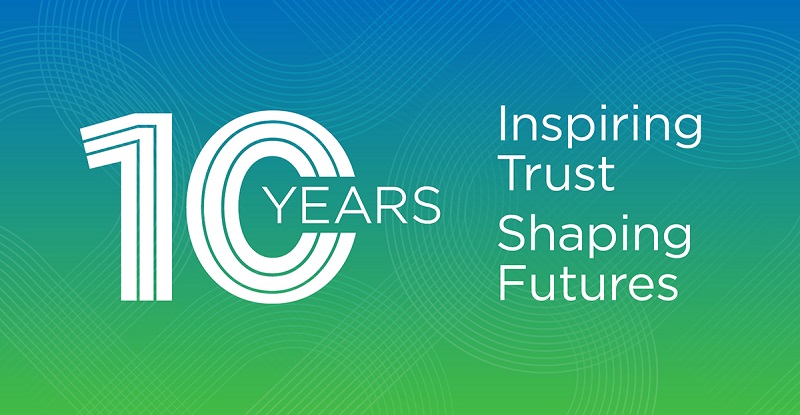
Canada’s CPA profession has always sought to collaborate on issues of national importance, and always in the public interest. One area of collective focus has been digital transformation, with an emphasis on member-facing initiatives.
In the fall and winter of 2020, the CPA profession conducted outreach across Canada to gauge the impact of COVID-19 on members’ digital transformation efforts. We also wanted to gain insight on how the profession could better support members overall. I’m pleased to say there was a high level of member participation across the country.
Our outreach included a national survey in which respondents were asked to categorize what stage they and their company were at in terms of digital transformation: the beginning stage (explorers), the advanced stage (navigators), or leading the profession (innovation leaders). On average, members rated both their own and their organization’s level of technological maturity at around seven out of 10, meaning that a not-insignificant investment of time and money had already been made. Unsurprisingly, perhaps, younger members and members working for larger organizations said they felt better positioned to manage the impacts of technology. The survey also revealed that overall investment in technology increased after the pandemic began.
We also reached out to members by hosting roundtable sessions and conducting interviews. In these conversations, members across the innovation spectrum shared similar experiences and challenges with regard to the impact of COVID-19 on the profession. From their feedback, we learned that COVID-19 has been a significant catalyst for internal and external change and that many of the changes made during the pandemic have created efficiencies and increased productivity.
Additionally, we learned that the onset of the pandemic led many organizations to fast-track technology projects that were already being planned. Many members also told us that their organizations had to invest in technology to allow for remote work and paperless processes. In general, members’ feedback indicated that larger organizations, which typically were more innovative to begin with, were in a better position to make additional investments in technology.
Notably, most members said they felt overwhelmed by the speed and scope of change.
Understanding explorers, navigators, and innovation leaders
To better understand members’ concerns and needs, we drilled down into the three innovation categories. Here’s what we found:
Explorers
Overall, explorers tended to focus on present and near-future needs—specifically the digitization of documentation and what it can enable. They recognized that CPAs should know how to drive organizational efficiency and productivity with technology, and expressed a need to increase their knowledge in this area. They said they believed the benefits of digital transformation include greater efficiency and the opportunity to collaborate with clients more deeply, as well as the ability to collect greater volumes and new kinds of data and more advanced analytics to drive business value.
In terms of obstacles, explorers said the general lack of regulation around IT limited the tools and vendors they were comfortable using. Other barriers to technology adoption included implementation, change management, and infrastructure challenges.
Navigators
Navigators tended to have more experience implementing complex digital transformation initiatives and said they were already moving in this direction when the pandemic began. They told us they were focused on digital transformation that reduced risk, improved operations, and facilitated data-driven decision-making for leaders.
Navigators said they believe CPAs need to change their mindsets around digital transformation—that we need to embrace change, be open to learning new skills related to IT, and realize that technology is inherently embedded in everything that we do. They voiced concern about what they saw as a general lack of digital literacy and said many organizations lacked a basic understanding of data security and governance. Noting that a lack of digital literacy reduces the pace at which change can occur, navigators said there is a need to “upskill” the profession so CPAs can, in turn, upskill clients and non-CPA employers.
Innovation leaders (innovators)
Innovators tended to see digital transformation as more than technology adoption, describing it as a combination of technology with process and organizational innovation. They noted that organizations must constantly re-conceptualize how things are done to get the right benefits from technology, and control and governance was top of mind. They said digital transformation should drive value creation, and that some degree of experimentation and failure must be expected and accepted.
According to innovators, the biggest challenges of digital transformation include change management, ensuring clear project scope for technology, identifying and focusing on technology “needs” rather than “desires”, and overcoming resistance to adoption. Regulation was also cited as a potential barrier, particularly when projects span multiple jurisdictions.
Innovators also identified many benefits of digital transformation, including gaining the capacity to provide real-time analytics and insights, analyze complete data sets, increase efficiency, scale up, and create profoundly new business models. Additionally, innovators in public practice saw digital transformation as an opportunity to remain relevant and competitive, and said firms would benefit from a younger, more mobile, and digitally literate workforce.
How the CPA profession can help
Explorers, navigators, and innovators all agreed that CPAs are well suited to play a significant role in the digital transformation of their respective organizations due to their training and commitment to continuous education. They also saw the importance of digital transformation and recognized that it will be an ongoing process. Many said they were already the “go-to” IT person for their organization and believed they were well-positioned to connect digital transformation to finances.
Members also said the CPA profession could support them along their digital transformation journey. The following were among the general needs identified:
- Basic digital literacy;
- A basic understanding of security, information governance (with respect to privacy and regulation), systems architecture, and applications;
- A basic understanding of data science, including business intelligence; and
- A go-to source for information on technologies and vendors. Some members said they’re not sure where to begin and would appreciate a “neutral cross-comparison” of the tools and vendors available.
Among the specific needs identified, members said the profession could assist with digital transformation by:
- Mandating digital literacy and training as part of CPD hours (similar to ethics), and integrating technology into courses (as an enabler), rather than teaching it separately;
- Facilitating a networking and discussion platform for CPA peer-to-peer communication (e.g., with members providing examples of what worked and what didn’t work) or creating a database of CPAs with IT expertise who would be open to answering questions and/or providing advice;
- Increasing training opportunities, including making sure that offerings are adapted/redeveloped for the online context; and
- Gauging member needs (e.g., via short questionnaires) and providing information on reasonably priced, relevant PD programs.
We appreciated the strong member input that we received during this outreach process. We were impressed with the level of focus members have been placing on digital transformation thus far, and we look forward to continuing to support you on this journey.
Lori Mathison, FCPA, FCGA, LLB, is the president & CEO of CPABC and the chair of the CPA Profession’s Digital Transformation Task Force.
This article originally appeared in the November/December 2021 issue of CPABC in Focus.



